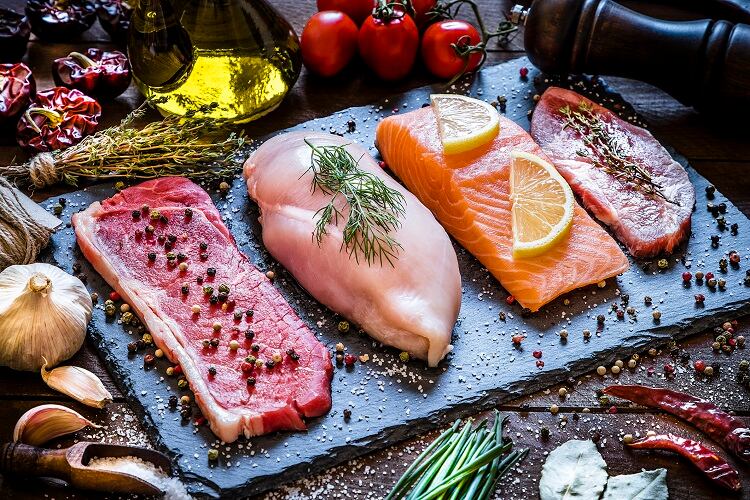The ‘food as medicine’ trend is changing the way consumers view the entire food and beverage industry.
Worth an estimated $25bn (€23bn) and growing at a CAGR of 4.3% (Prophecy Market Insights), it’s fuelling sales of food and beverage products believed to promote health and wellbeing.
What’s more it’s dominating the health and wellness conversation, with thousands of related posts on TikTok, Instagram and X.
Now, research on the role of vitamin B12 in the potential prevention and cure of acute pancreatitis, looks set to boost this megatrend.
What is acute pancreatitis?
Acute pancreatitis (AP) is a severe gastrointestinal condition, which affects people of all ages. It’s a leading cause of hospital admissions worldwide, with around 1 in 5 patients developing moderate to severe forms of the disease.
Could consuming B12 prevent pancreatitis?
A research team, led by Dr Chuanwen Fan and Professor Dr Xianming Mo, from West China Fourth Hospital at Sichuan University, conducted a study to explore whether vitamin B12 could help prevent or reduce the severity of acute pancreatitis.
The researchers began by analysing large-scale genome-wide association studies (GWAS) to identify genetic links to pancreatitis. They then used Mendelian randomisation - a research method that leverages genetic variation to study the effects of specific nutrients - to examine whether one-carbon metabolism nutrients (B6, B9 and B12) were connected to pancreatitis risk.
Results showed a strong association between higher blood levels of vitamin B12 and a lower risk of developing several forms of pancreatitis.
The team then worked to determine whether vitamin B12 displayed protective and potential therapeutic effects, using experimental models of pancreatitis in CD320 knockout mice, which lack a key gene responsible for vitamin B12 absorption.
The results revealed that vitamin B12 directly protects acinar cells (found primarily in the pancreas) from necrosis during the early stages of acute pancreatitis and subsequently reduces T lymphocyte infiltration.
Notably, artificially increasing serum B12 levels before and after the induction of pancreatitis not only reduced the severity of the condition but also promoted tissue repair after pancreatic injury.
Additionally, B12 was found to enhance adenosine triphosphate production (the primary energy source of living organisms.) in pancreatic tissue, thereby reducing acinar cell necrosis and preventing disease progression.
“These exciting new findings add to the growing evidence that vitamin B12 can reduce the severity of acute pancreatitis by increasing adenosine triphosphate production levels in pancreatic tissue, offering novel insights into potential therapeutic strategies for this disease,” says Professor Mo.
What is vitamin B12
Vitamin B12, also known as cobalamin, is a water-soluble vitamin. One of eight B vitamins, B12 is essential to DNA synthesis, and fatty and amino acid metabolism.
It also plays an crucial role in supporting the nervous system and is critical for the maturation of red blood cells in bone marrow.
Foods rich in vitamin B12 include:
- Red meat
- Poultry
- Fish and seafood
- Dairy products
- Eggs
Innovation and NPD opportunities
This discovery could well lead to a surge in interest in the food as medicine trend, as consumers look more closely at the benefits of the foods and beverages they consume. Not only could their diet improve overall health and wellbeing, it could potentially treat specific ailments.
In particular, we could see an uptick in sales of red meats, poultry, fish and seafood, dairy products, and eggs, as they’re all naturally high in B12 and are easily accessible.
Sales of functional foods and beverages fortified with B12 could also increase, particularly amongst vegans, who are unable to get the vitamin into their diet through diet alone.
Fortification is already popular in the food as medicine space, with manufacturers reformulating to meet consumer demand for products which support specific needs.
In fact, it’s become so successful that the global fortified foods market is worth $184.69bn and projected to grow at a CAGR of 7.35% over the next seven years, taking it to $303.42bn by 2032 (ResearchandMarkets).

Source: Wiley Online Library - Vitamin B12 protects necrosis of acinar cells in pancreatic tissues with acute pancreatitis
DOI: 10.1002/mco2.686
Authors: Yulin Chen, Xue Li, Ran Lu et al.





